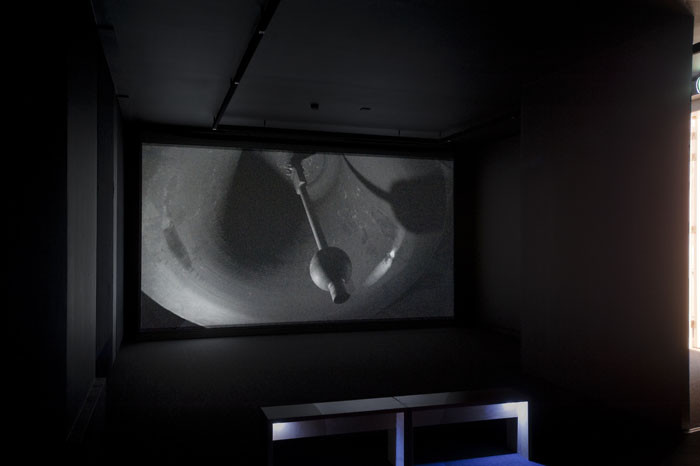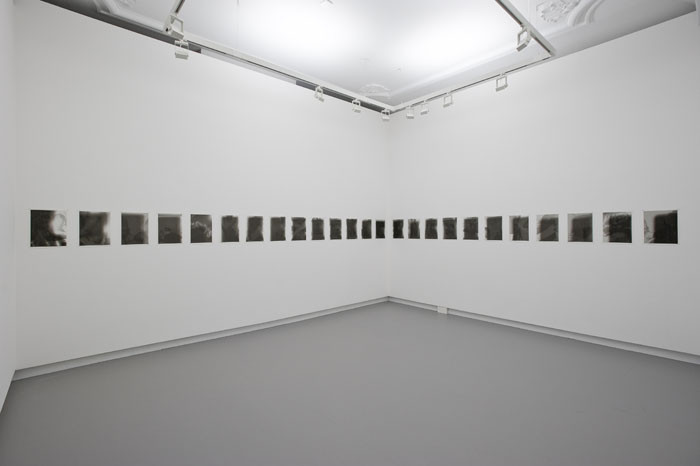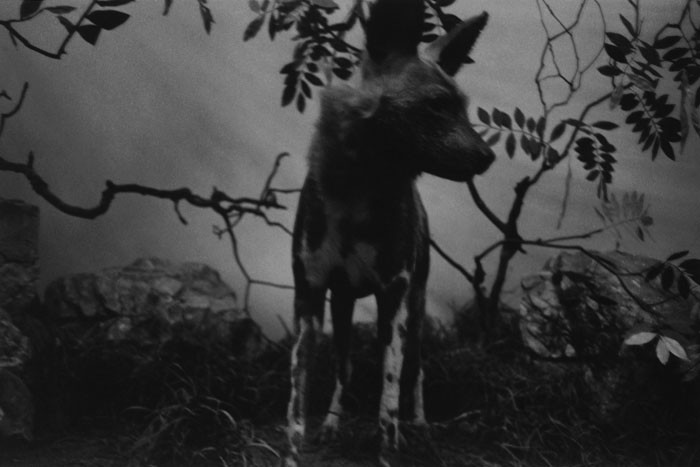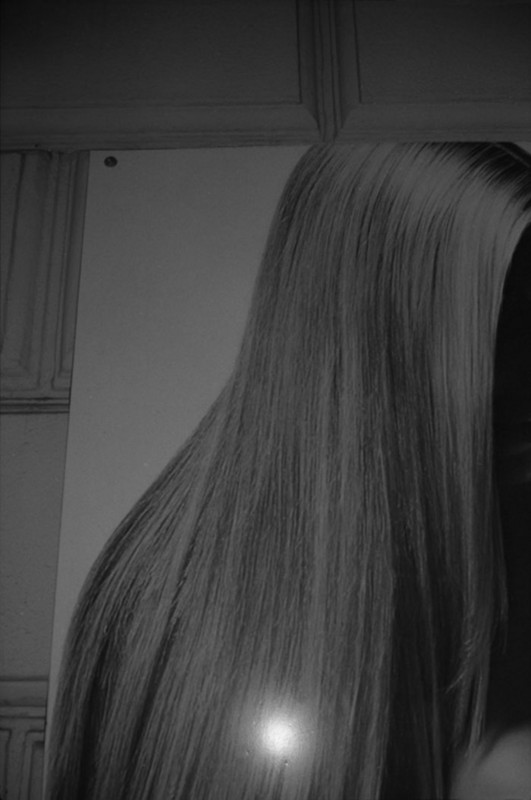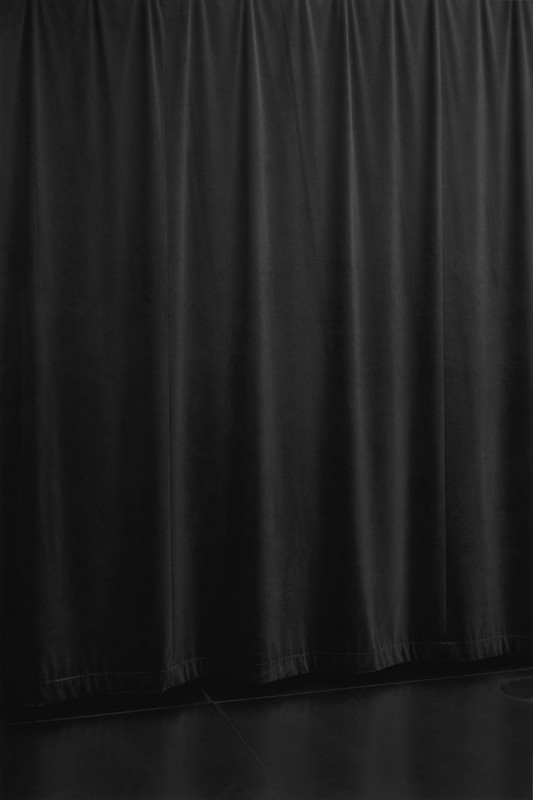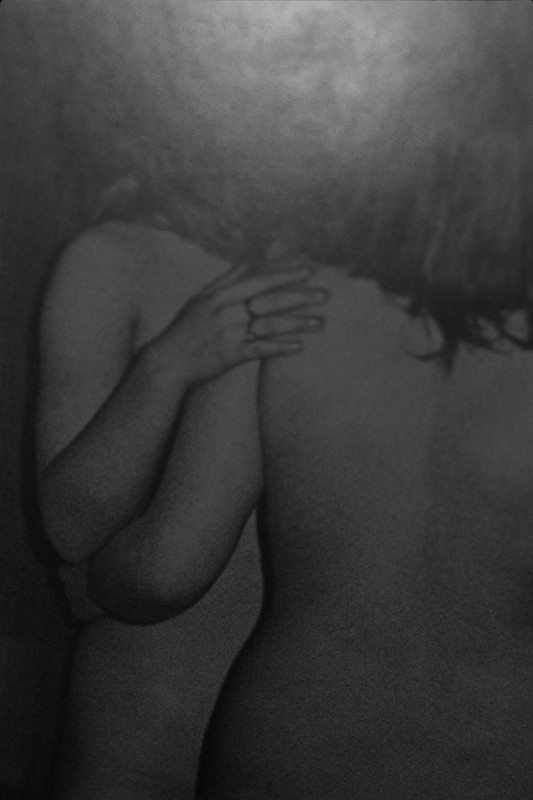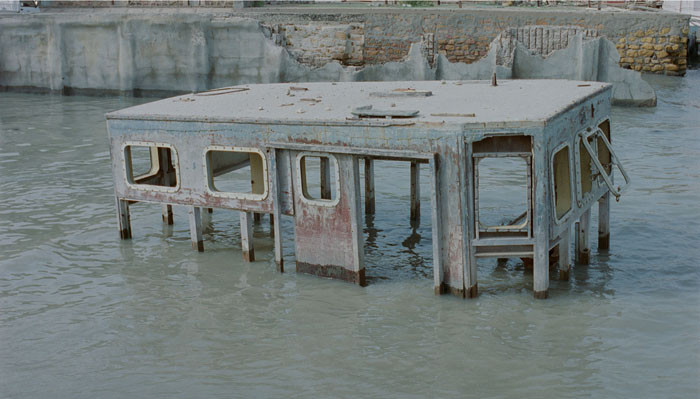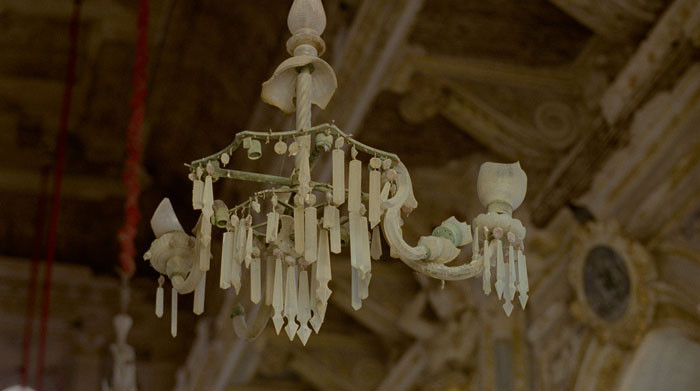Zarina Bhimji, Dirk Braeckman
17 Nov 2012 - 31 Mar 2013
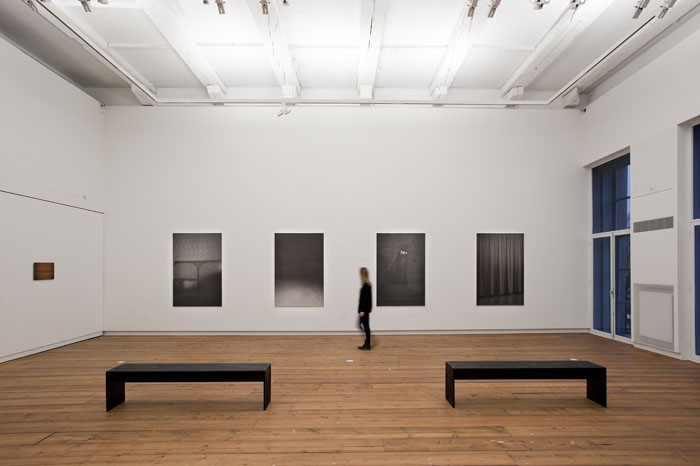
Dirk Braeckman, exhibition view at de Appel, Amsterdam, 2012. Photo by Cassander Eeftick Schattenkerk
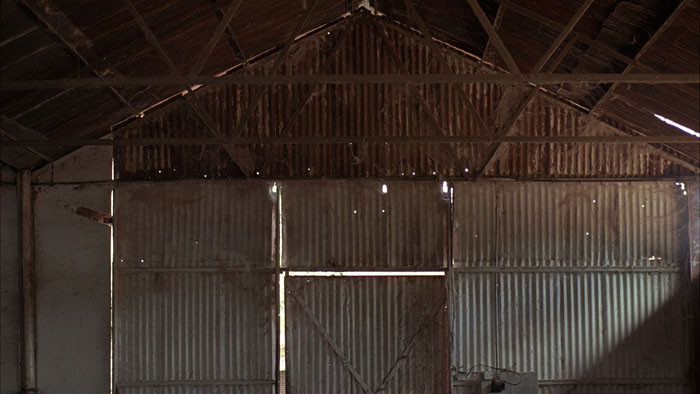
Zarina Bhimji, Waiting, 2007, 35mm film tranfered to HD, 7' 45'. High Definition Blue-ray and Dolby 5.1
ZARINA BHIMJI AND DIRK BRAECKMAN
17 November 2012 — 31 March 2013
This winter de Appel arts centre simultaneously presents solo projects by the Belgian photographer/filmmaker Dirk Braeckman and the British artist Zarina Bhimji. Braeckmans sensitive and large-scale photographs in shades of grey do not tell elaborate stories but are charged with an atmosphere which makes them “tick away like time bombs”, in the words of the author Luc Sante. The suggestive force and narrative potential of images are just as essential for Bhimji, whose latest film Yellow Patch (2011) has its Dutch premiere in de Appel arts centre.
Since the early 1990s Dirk Braeckman (Belgium, 1958) has built up an oeuvre of enigmatic photographs, large prints in black and white and shades of grey that reveal ambiguous images: desolate areas, reflecting wallpaper, a blurred painting, a fragment of a nude. Braeckman gives central place to atmosphere, texture and suggestion. The photographs have a snapshot-like, ephemeral quality, while each image is actually composed in a very precise way. Every detail is important: the cropping, the light, colour and texture, the lack of focus, and the material on which the photograph is printed. Braeckman approaches and treats photography like a painter.
In this exhibition Braeckman presents a carefully chosen selection of new photographs culled from the untitled publication recently released by Roma Publications (a cross between an artist’s book and a catalogue raisonné). From his extensive archive of negatives Braeckman selected “new images”, that have never been printed and that will be premiered in de Appel arts centre. Braeckman will equally reveal one of the lesser well-known aspects of his oeuvre in de Appel: a new film for the first time, which elaborates on previous film experiments.
In Zarina Bhimji’s work (UGA, 1963) beauty merges with politics and poetry so something new emerges. Her work is characterised by a deliberate use of visual ambiguity. The works reflect spaces, micro details and the light of distant interiors. The location of light is an important and intricate element of Bhimji’s composition. The stillness and suspension of everyday life. The atmosphere is tactile, a moist light. The spaces refer to disconnection, incompleteness and belatedness.
The exhibition develops in two phases: from 16 November 2012 to 3 February de Appel premieres Bhimji's new production Yellow Patch, from 5 February to 31 March de Appel showcases the installation Waiting (2007).
Yellow Patch is Bhimji’s second large film production, co-produced by de Appel arts centre, Outset Contemporary Art Fund, The New Art Gallery Walsall with executive producers Artsadmin. Additional support was provided from Arts Council England, Framestore and individual donors. The 35mm film was entirely shot in India and was inspired by trade and immigration routes across the Indian Ocean. Beautiful close-ups of desolate Haveli palaces and colonial offices in the port of Mumbai are coupled with atmospheric images of the desert and the sea and accompanied by an evocative soundtrack.
Waiting was shot in East-Africa in a factory used to process Sisal and has an abstraction that hovers somewhere between film and painting. The washed-out colour of the hair-like material, the light, and the interior of the factory create a saturated monochrome that, combined with the film's soundtrack, becomes immersive.
In Braeckman and Bhimji’s work, ambiguous and “open” recordings of architecture, landscapes, objects and spaces are the signifiers. They seem to emphasise the intrinsic expressive power of the image and invite the audience to a ‘slow’ reading of the work.
17 November 2012 — 31 March 2013
This winter de Appel arts centre simultaneously presents solo projects by the Belgian photographer/filmmaker Dirk Braeckman and the British artist Zarina Bhimji. Braeckmans sensitive and large-scale photographs in shades of grey do not tell elaborate stories but are charged with an atmosphere which makes them “tick away like time bombs”, in the words of the author Luc Sante. The suggestive force and narrative potential of images are just as essential for Bhimji, whose latest film Yellow Patch (2011) has its Dutch premiere in de Appel arts centre.
Since the early 1990s Dirk Braeckman (Belgium, 1958) has built up an oeuvre of enigmatic photographs, large prints in black and white and shades of grey that reveal ambiguous images: desolate areas, reflecting wallpaper, a blurred painting, a fragment of a nude. Braeckman gives central place to atmosphere, texture and suggestion. The photographs have a snapshot-like, ephemeral quality, while each image is actually composed in a very precise way. Every detail is important: the cropping, the light, colour and texture, the lack of focus, and the material on which the photograph is printed. Braeckman approaches and treats photography like a painter.
In this exhibition Braeckman presents a carefully chosen selection of new photographs culled from the untitled publication recently released by Roma Publications (a cross between an artist’s book and a catalogue raisonné). From his extensive archive of negatives Braeckman selected “new images”, that have never been printed and that will be premiered in de Appel arts centre. Braeckman will equally reveal one of the lesser well-known aspects of his oeuvre in de Appel: a new film for the first time, which elaborates on previous film experiments.
In Zarina Bhimji’s work (UGA, 1963) beauty merges with politics and poetry so something new emerges. Her work is characterised by a deliberate use of visual ambiguity. The works reflect spaces, micro details and the light of distant interiors. The location of light is an important and intricate element of Bhimji’s composition. The stillness and suspension of everyday life. The atmosphere is tactile, a moist light. The spaces refer to disconnection, incompleteness and belatedness.
The exhibition develops in two phases: from 16 November 2012 to 3 February de Appel premieres Bhimji's new production Yellow Patch, from 5 February to 31 March de Appel showcases the installation Waiting (2007).
Yellow Patch is Bhimji’s second large film production, co-produced by de Appel arts centre, Outset Contemporary Art Fund, The New Art Gallery Walsall with executive producers Artsadmin. Additional support was provided from Arts Council England, Framestore and individual donors. The 35mm film was entirely shot in India and was inspired by trade and immigration routes across the Indian Ocean. Beautiful close-ups of desolate Haveli palaces and colonial offices in the port of Mumbai are coupled with atmospheric images of the desert and the sea and accompanied by an evocative soundtrack.
Waiting was shot in East-Africa in a factory used to process Sisal and has an abstraction that hovers somewhere between film and painting. The washed-out colour of the hair-like material, the light, and the interior of the factory create a saturated monochrome that, combined with the film's soundtrack, becomes immersive.
In Braeckman and Bhimji’s work, ambiguous and “open” recordings of architecture, landscapes, objects and spaces are the signifiers. They seem to emphasise the intrinsic expressive power of the image and invite the audience to a ‘slow’ reading of the work.

